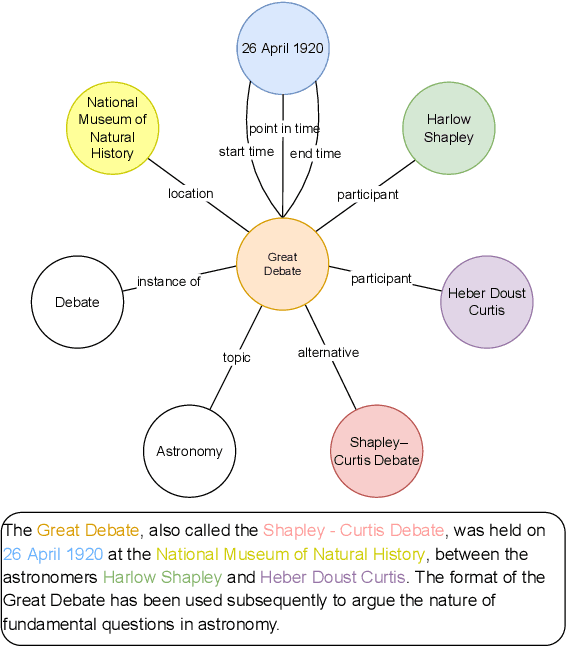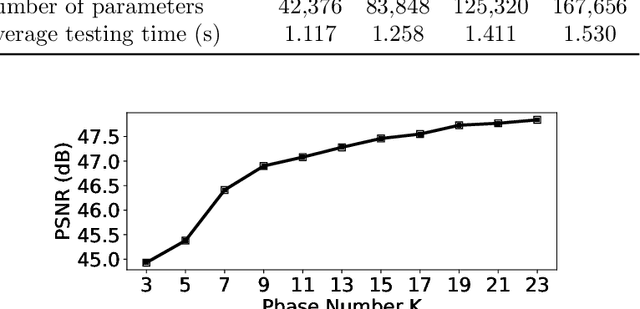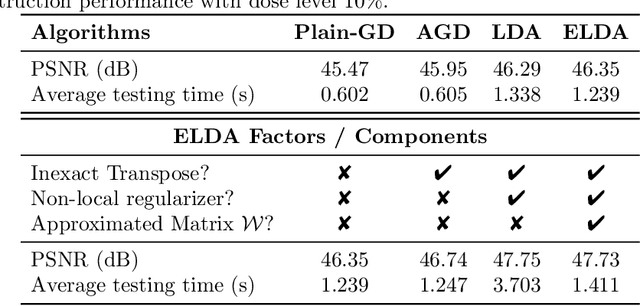Mehrdad Alvandipour
GAP: A Graph-aware Language Model Framework for Knowledge Graph-to-Text Generation
Apr 13, 2022



Abstract:Recent improvements in KG-to-text generation are due to additional auxiliary pre-trained tasks designed to give the fine-tune task a boost in performance. These tasks require extensive computational resources while only suggesting marginal improvements. Here, we demonstrate that by fusing graph-aware elements into existing pre-trained language models, we are able to outperform state-of-the-art models and close the gap imposed by additional pre-train tasks. We do so by proposing a mask structure to capture neighborhood information and a novel type encoder that adds a bias to the graph-attention weights depending on the connection type. Experiments on two KG-to-text benchmark datasets show these models to be superior in quality while involving fewer parameters and no additional pre-trained tasks. By formulating the problem as a framework, we can interchange the various proposed components and begin interpreting KG-to-text generative models based on the topological and type information found in a graph.
Provably Convergent Learned Inexact Descent Algorithm for Low-Dose CT Reconstruction
Apr 27, 2021



Abstract:We propose a provably convergent method, called Efficient Learned Descent Algorithm (ELDA), for low-dose CT (LDCT) reconstruction. ELDA is a highly interpretable neural network architecture with learned parameters and meanwhile retains convergence guarantee as classical optimization algorithms. To improve reconstruction quality, the proposed ELDA also employs a new non-local feature mapping and an associated regularizer. We compare ELDA with several state-of-the-art deep image methods, such as RED-CNN and Learned Primal-Dual, on a set of LDCT reconstruction problems. Numerical experiments demonstrate improvement of reconstruction quality using ELDA with merely 19 layers, suggesting the promising performance of ELDA in solution accuracy and parameter efficiency.
 Add to Chrome
Add to Chrome Add to Firefox
Add to Firefox Add to Edge
Add to Edge